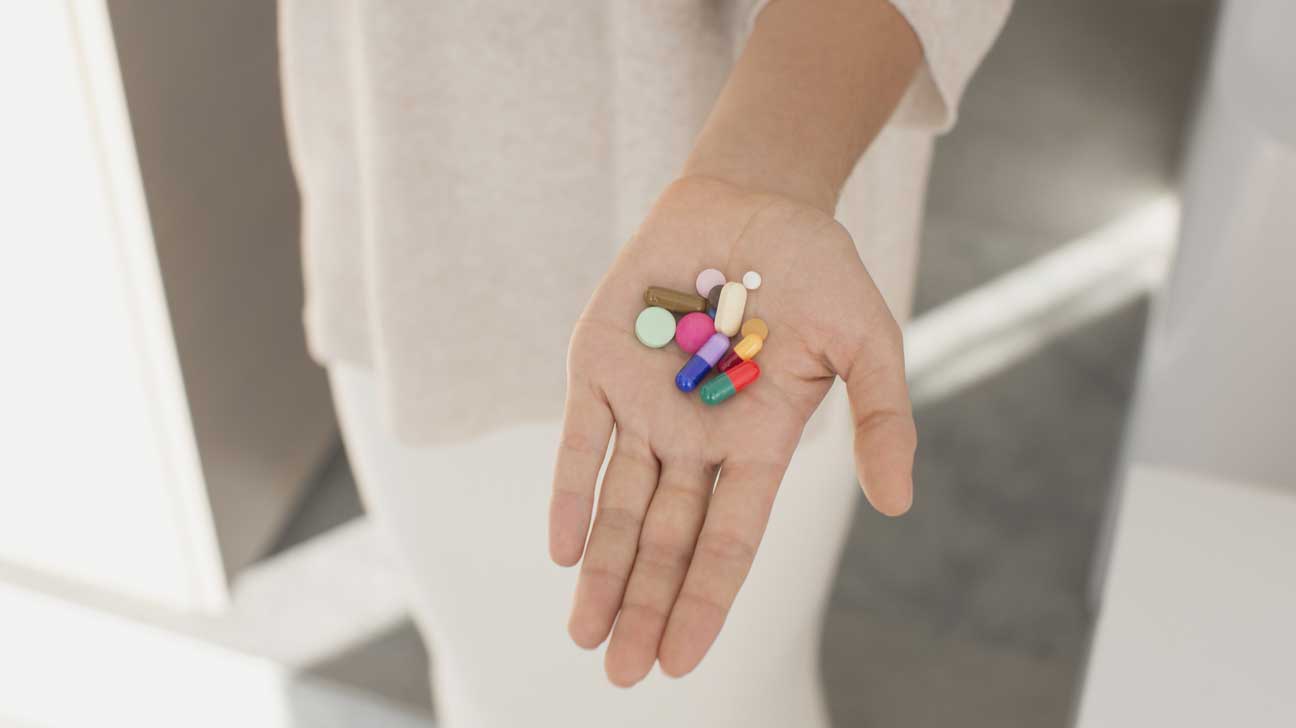Nature Knows and Psionic Success
God provides
Nootropics: Ten Things You Need To Know About Brain Boosters
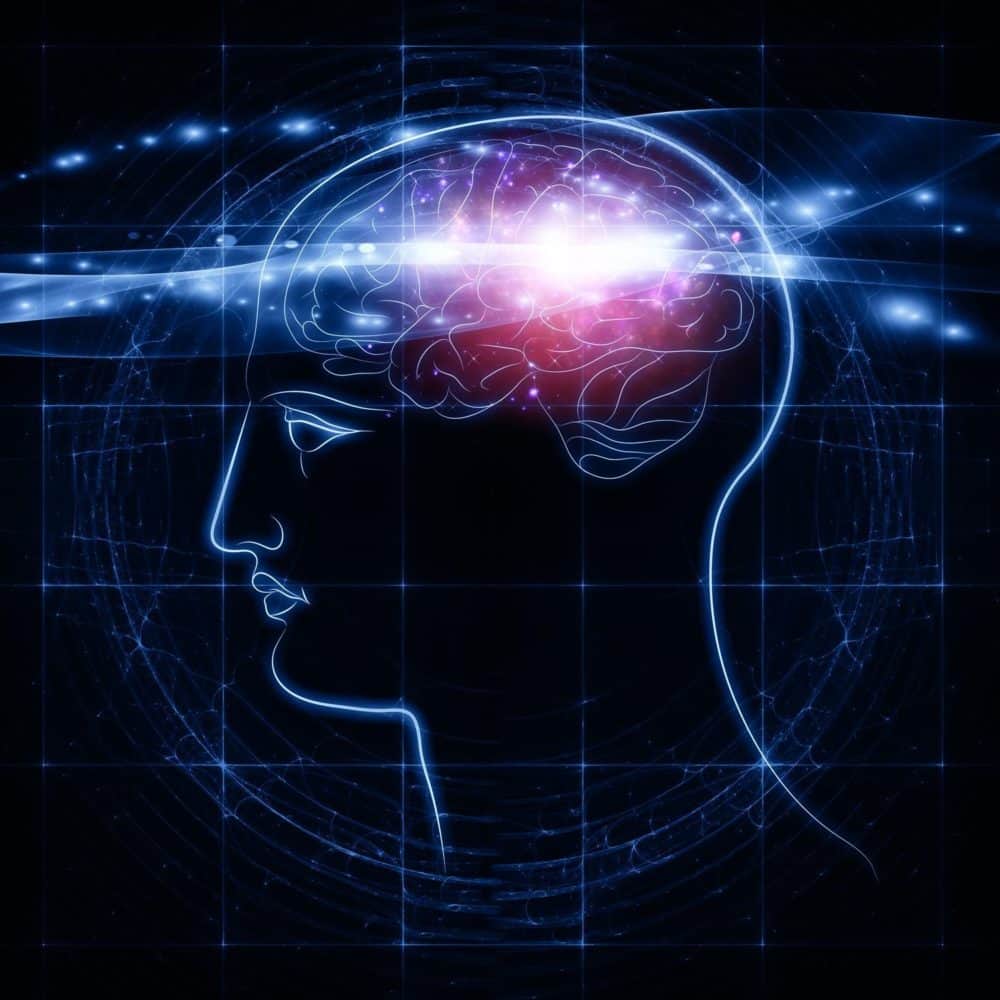
Nootropics, otherwise known as “smart drugs,” are substances that can improve cognitive processes, memory, focus, and behavior. They range from widely available ones such as caffeine (a stimulant) to prescription-only drugs that are primarily used by students in academically competitive colleges. As nootropics become more and more popular, it becomes imperative that users keep themselves informed and up-to-date about their qualities. Here are ten things you need to know about these brain boosters. 1.) Not All Nootropics are Synthetically Produced As stated above, nootropics can come from widely available and natural ingredients such as caffeine or the extract of Bacopa monnieri , while some nootropics are synthetically produced and are marketed as drugs. People have already used naturally-produced nootropics to alter mental states for centuries, but the real dawn of nootropic usage was when Corneliu Grugea discovered the first modern nootropic: Piracetam. 2.) The Definition of Nootropics as Cognitive Enhancers Has Already Evolved The limiting description of nootropics as cognitive enhancers is already fast-changing because of the discovery of new ingredients and different modes of action of the said substance. As they skyrocket in popularity all around the world, any nutrient that is beneficial for the brain and the nervous system can already be considered a nootropic. Today, at least 70 different substances are considered nootropics and they still maintain the original purpose of the substance which is to enhance cognitive function. Also, these substances can also slow down neurologic aging, strengthen stress resistance, enhance mood and creativity, and a lot more! 3.) Nootropics Keep Your Brain Tissue Healthy and Provide Nutritional Supplements to Your Nervous System Nootropics provide Vitamins B6 and B12 which are essential for neurotransmitter production and protection of the nerves’ myelin sheaths. Neurotransmitters are chemicals needed for the transmission of a signal from one neuron […]
One of the most nutritious green leafy vegetables, spinach is versatile and easy to incorporate into your diet
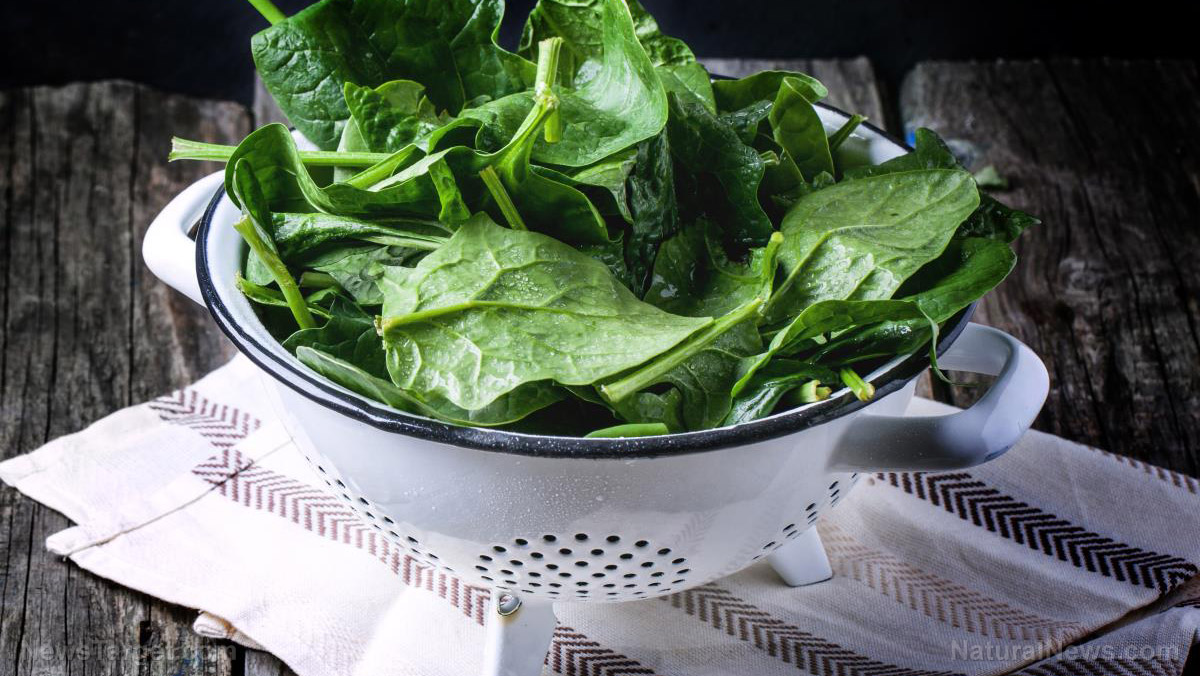
( Natural News ) A nutritious leafy vegetable , spinach ( Spinacia oleracea ) grows annually. The leaves of this plant are fleshy and full of essential nutrients and phytochemicals. Native to southwest Asia (in the area of present-day Iran), spinach is now cultivated around the globe in temperate climate zones. California is the biggest spinach producer in the U.S., followed by Arizona and New Jersey. The annual per capita consumption of spinach in the U.S. in 2014 was at least 1.7 pounds. The health benefits of spinach One of the most nutritious leafy vegetables, spinach is second only to kale ( Brassica oleracea var. sabellica ) in total carotenoid and folate content. It is also full of protein and low in carbohydrates and fat. Spinach is also a good source of vitamins and minerals, and it maintains its nutritional value even after cooking. Eat some spinach if you need B vitamins, which is crucial for carbohydrate metabolism, the nervous system, and the brain. Spinach also contains minerals such as: Calcium Copper Iodine Iron Magnesium Potassium Selenium Vitamin A Vitamin C Vitamin K Zinc Spinach’s carotenoid, flavonoid, and phenolic acid content means it’s a healthy and therapeutic food. These three compounds can neutralize free radicals in the body, and they can also protect the body from damage and disease by minimizing inflammation. Spinach leaves have two major carotenoids: Beta-carotene and lutein. These two carotenoids make up over 65 percent of the leafy vegetable’s total carotenoids content. Lutein can help prevent vision loss from age-related degenerative disorders like cataracts and macular degeneration. Support our mission to keep you informed : Discover the extraordinary benefits of turmeric gummy bears and organic "turmeric gold" liquid extract , both laboratory tested for heavy metals, microbiology and safety. Naturally high in potent curcuminoids. Delicious […]
Japanese study concludes that taking both EPA and DHA improves exercise performance

( Natural News ) If you’re looking to get more out of your workout, you don’t necessarily need to spend extra time at the gym or turn to risky performance enhancers. According to a new Japanese study, ingesting the omega-3 fatty acids EPA and DHA could be enough to safely give your athletic performance a boost. They reached their conclusions after carrying out a review of how these fatty acids affect muscle mass and strength as well as damage to muscles and nerves in animals and humans. While some studies have indicated there isn’t a difference in muscle strength after taking DHA and EPA, the researchers say those studies simply didn’t give it enough time to work its magic. Those studies took place over the course of just three to four weeks, and supplementation is said to take up to 60 days to successfully stop muscle strength deficit. When it comes to muscle soreness, they discovered that the effect of EPA and DHA was dose-dependent . The ideal ratio was determined to be 2:1 when it comes to having an impact on delayed-onset muscle soreness. They also found that supplementation could reduce neuromuscular damage. In animals, they found that it can prevent reductions in muscle mass, but they can’t yet conclude whether this effect extends to humans. Nevertheless, they were able to determine that the combination of DHA and EPA can help with exercise damage and function. They have a synergistic effect when taken simultaneously, and they appear to have different roles. However, they caution that precise dosages need to be investigated and could depend on a person’s exercise experience, sex, age, health status, and other factors. They also point out that the natural medicines database sets the total safe limit of DHA and EPA in humans at 3 […]
That extra glass of wine could be hurting you: Drinking alcohol at night significantly impacts your sleep quality

( Natural News ) It is known that excessive alcohol drinking has a lot of negative consequences. However, research shows that even drinking as little as one glass of alcohol can also harm you. In fact, a study published in the journal JMIR Mental Health has found that one drink of alcohol can impair sleep quality . The study was carried out by a team of researchers at Tampere University of Technology , the University of Jyväskylä , and Finnish Institute of Occupational Health in Finland who looked at the effects of alcohol consumption on the autonomic nervous system during sleep. In conducting the study, the research team analyzed data from more than 4,000 participants aged between 18 and 65. The participants’ heart rate variability (HRV) was recorded in uncontrolled, real-world conditions using a special device. HRV is a measure that tells how many variations are present between heartbeats within a specific time frame. HRV measurements made it possible for the researchers to evaluate the participants’ quality of sleep. The research team looked at the participants’ first three hours of sleep and evaluated their sleep HRV recordings from at least two nights: one where the participants had drunk alcohol and one where they had not. Alcohol consumption was classified into three: low, moderate, and high. These categories were based on the body weight of the participants. In general, a low intake of alcohol could be equivalent to one to two drinks, while moderate would equate to two to six, and high would mean over six drinks. Results revealed that even low alcohol consumption reduced sleep quality, lowering the physiological recovery that sleep normally offers by 9.3 percent. Moreover, moderate alcohol intake decreased restorative sleep quality by 24 percent, and high alcohol consumption by 39.2 percent. The outcomes were the […]
Even low-level exposure to pesticides increases your risk of Parkinson’s

( Natural News ) We all know that pesticide exposure is bad, whether it comes from the food you eat or you happen to live or work on a farm. You might think you can get away with a few non-organic fruits here and there or that a couple hours working on the farm won’t be enough to hurt you. Unfortunately, this line of reasoning could come back to haunt you as a new study shows that even low-level exposure to pesticides can raise your risk of Parkinson’s disease . Researchers from the University of Guelph reached this conclusion after studying the stem cells of people with Parkinson’s disease who had a genetic mutation in the synuclein gene, which is highly associated with a greater risk of the illness. They compared this to normal stem cells that they had introduced the mutation into using gene editing. They used these stem cells to create dopamine-producing neurons like those affected when a person has Parkinson’s and then exposed them to two commonly used agrochemicals: maneb and paraquat. Upon exposure, the mitochondria in the cells weren’t able to get where they needed to go within the cell, which had the effect of depleting the neurons’ energy. This problem occurred below the doses that the EPA has identified as the lowest observed effect level in the neurons of people with Parkinson’s and those with the introduced genetic risk factor. It took a higher dose to impair the function of normal neurons, however. Study author Scott Ryan remarked that those who are predisposed to Parkinson’s are more vulnerable to low-level agrochemical exposure than others and thus have a higher risk of developing the disease. This, he said, partly explains why those who live in agricultural areas have a higher risk of Parkinson’s . Support […]
Koios Beverage Corp. (CSE: KBEV) is “One to Watch”
Growing worldwide market for nootropics as a safe way for people to boost brain function and earn a competitive edge Non-prescription cognitive enhancers officially became a billion-dollar industry in 2015 Koios, via its GMP-certified and FDA-compliant lab, has developed nootropic products that are made only with high-quality, natural ingredients and are available prescription-free Koios is available in stores and online and is distributed worldwide Koios Beverage Corp. (CSE: KBEV) develops and distributes nature-based products that boost brain function, enhance health, and improve productivity. Its core vision is to help a billion people worldwide live more productively through the development of nootropics, which are supplements that improve cognitive abilities. The company’s flagship product, Koios, is a GMP-certified dietary supplement. Made from natural ingredients and backed by science, Koios is designed to improve focus, memory, mental drive, clarity and energy. The company produces Koios in the following formulations: Powder supplements containing nootropics as well as caffeine and lion’s mane and chaga mushrooms; Vegan-friendly capsules; Canned beverages containing nootropics along with MCT oil to burn fat and increase metabolism. Not to be mistaken with prescription-only drugs which are at times used for similar effects, nootropics are over-the-counter dietary supplements; some of which, like Koios, contain ingredients that are currently used in the treatment of patients with Alzheimer’s disease. The global field of nootropics is growing rapidly and expected to reach USD $6,059.4 Mn by 2024 with a CAGR of 17.9 percent from 2016 to 2024. According to media reports, there is believed to be significant and growing use of nootropics among high-achieving students and professionals. The UK’s leading Guardian newspaper found that nootropics are commonly used in Silicon Valley by computer industry professionals who want to “hack” their minds and maximize their productivity without any possible negative effects on the brain. Koios […]
I took nootropics every day for a week—here’s what happened

Just like how subsisting on Soylent instead of actual food became a habit among Silicon Valley bros years before you could buy a bottle at 7-Eleven , nootropics is another emerging trend already popular with the tech set. When you’re at your computer for 21 hours a day, the logic goes, you need a little something to help power you through. Combine that with being surrounded with biohackers on the cutting edge of wellness and you’re going to reach for something a lot more natural than Red Bull or Surge (or even espresso). Enter nootropics, supplements crafted to reduce brain fog and stress. And it’s not just the Silicon Valley set throwing them back anymore— you’re going to see them everywhere in 2018 . Now, they’re popping up not only in capsules, but vials, coffee , and even snack bars . Curious about whether they really worked, I decided to give nootropics a try, committing to taking one a day for a week. Would I zip through my work, making time for some online shopping and Buzzfeed quizzes? Or maybe the nootropic boost would allow me to work better, preventing that dreaded afternoon slump and inspiring me to work long and hard well past sunset. Or maybe the whole thing would be a waste of money. Ready to find out what happened? Keep reading. How nootropics work 10 Signs of Depression For my week-long experiment, I decide to try two different nootropic brands I’d been hearing about: Beekeeper’s Naturals B.LXR , which lists royal jelly as the primary ingredient, and HVMN’s Rise , made with alpha-GPC (or a-GPC), a high-potency precursor to the neurotransmitter acetylcholine, which is essential for learning and memory. My first thought is that this habit isn’t exactly cheap. Six vials of the Beekeeper’s Naturals’ nootropics […]
Most Effective Nootropics on The Market
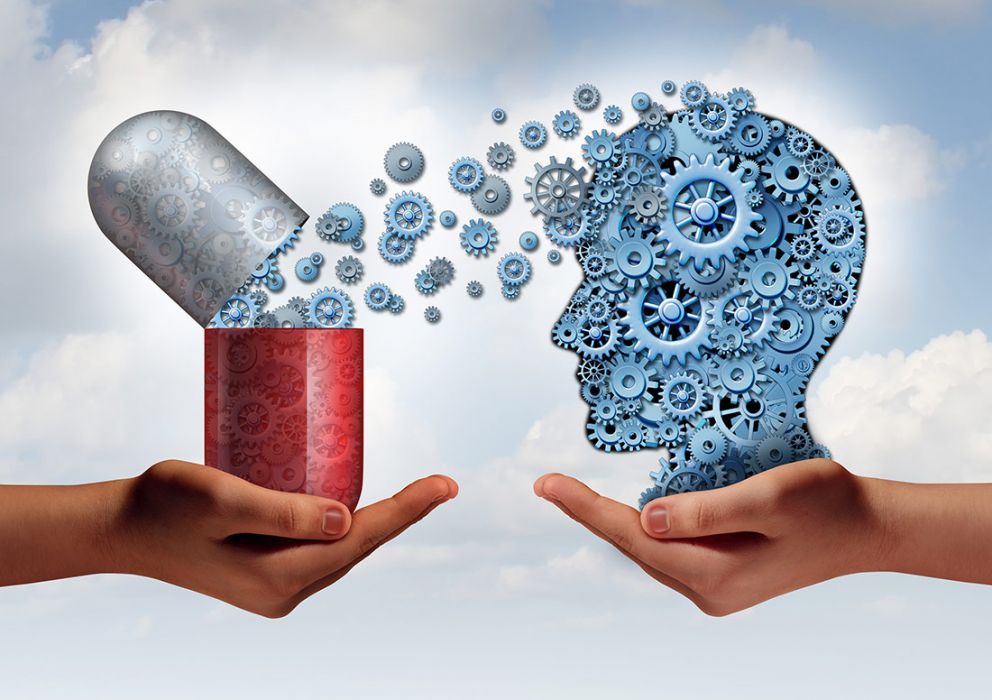
Nootropics are supplements that increase mental focus, motivation, energy, and clarity . Smart drugs are nothing new: caffeine is the most popular mental booster in the world. Fish oil is an ancient remedy. Today a new generation of exciting substances are gaining attention as mood enhancers and mental performance boosters. Many of these substances have anti-aging benefits and carry low adverse health risks. The field is growing as more folks seek an edge for better performance. 5 Top Nootropics Evidence is piling up for brain supplements, and many finished studies point to real benefits. There is much to learn, however, and people don’t all react to substances in the same way: it’s important to exercise caution and do your own research. We’ll review 5 of the new generation of smart substances. You can find any of these mental enhancers online as a component of our unique nootropics stack at Nutragy . Gingko Biloba Many natural substances have positive cognitive properties. For example, vitamin D has been found to be important to mental health, and fish oils are beneficial not only for heart and joint health, but also for the brain. Gingko biloba is an ancient herb used over 4000 years ago as a remedy for asthma and respiratory ailments. Studies have found positive results with gingko biloba and Alzheimer’s dementia, and confirm the herb’s support of general cognitive function. Best results of the herb may be in repair of cognitive ability, rather than a higher-than-normal performance. A more positive mood, increased energy, and better memory are reported by users of ginkgo biloba. L-Theanine This drug has become popular in recent years as a natural sleep and mood aid. The effect of L-Theanine is to increase dopamine and serotonin levels in the brain. Combining theanine and caffeine together shortens reaction […]
Top 10 Brain Supplements
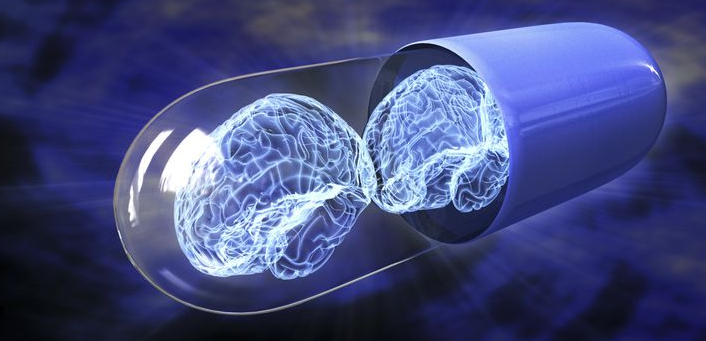
You can start using nootropics if you want to enhance your brain function. They are also commonly known as smart drugs, and they are designed to ensure that you are more focused and productive. With them, you are less likely to suffer from stress and stress-related complications. If you are a student, they make learning incredibly easy hence you can attain your dream grades. They also help to prevent diseases like Alzheimer and cancer. There are various brain supplements that come with different effects. The following are ten of them that can ultimately improve the quality of your life. 1. Citicoline Citicoline occurs naturally in the human body cells and is ranked among the top best brain boosters. It helps to build brain cell membranes that are healthy by improving the blood flow to your brain. It also enhances the brain plasticity. By firing the mitochondria , it ensures that your brain energy remains high. 2. Aniracetam This smart drug is suitable for students who are keen on improving their grades and being able to concentrate better during their study hours. This is by enhancing your memory, cognitive perception as well as problem-solving skills. 3. Bacopa Monnieri This brain supplement is a memory booster, and it is also known to reduce anxiety. It also promotes neuron communication by increasing the rate at which the human nervous system communicates by increasing the nerve endings’ growth. You should always take it on a full stomach. 4. Alpha GPC If you want to reduce both mental and physical fatigue, you can start taking this smart drug. It is also one of the nootropics that enhances a person’s memory function and helps them to understand better when learning. 5. Noopept Noopept is one of the brain supplements that you can buy at Nutragy […]
3. Vitamin B1: Thiamine
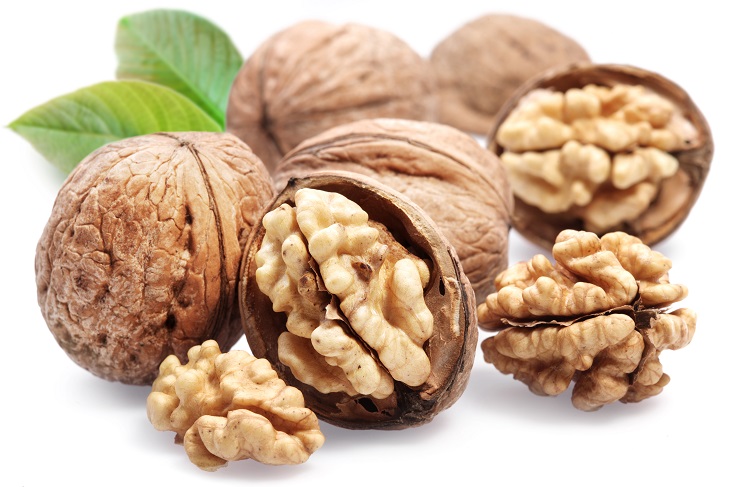
Your brain is 60% fat, so if you want a healthy and optimally performing brain, you need to ensure that you’re giving your brain the right building blocks and fat is one of the most important. Fat has been vilified for decades, but in reality, high-quality fat is not only good for you, it’s essential for your brain power and health. Omega-3 is one of the most important fats to give your brain. In fact, not getting enough omega-3 in your diet can affect normal brain development and cognition. It has also been shown to be implicated in premature brain aging and cognitive decline. Best sources : Chia seeds, walnuts, sardines, salmon, eggs, fish oil, and flaxseed. May also interest you: Here’s What Everyone Really Must Know About COPD! 2. Magnesium Magnesium is essential for brain activity and has been known to calm the brain and the nervous system to the point that it has been called “Nature’s Natural Valium.” Magnesium is essential for hundreds of metabolic processes within the body and brain, yet it’s the second most common nutritional deficiency in the world. Magnesium helps the brain by: • Decreasing stress hormones • Providing anti-inflammatory benefits • Increasing neuroplasticity • Helping to lift depression • Reducing anxiety • Relaxing the nervous system Best sources : Spinach, almonds, avocado, black beans, and cashews. Many B vitamins are known to be beneficial for brain health and well-being. B1, also known as thiamine, is needed for a large number of metabolic processes in the body including the processes that manage your energy levels. Your brain uses a lot of energy throughout the day, so having low levels of thiamine can rob your brain of the vital energy that it requires. Thiamine can help to boost your mood, energy, and alertness by […]
Memory Jolt: Can a Workout Instantly Improve Your Memory?

A workout gets your blood pumping and gets your “engines” running so you can tackle the rest of your day. That’s why morning exercise works for many people. Plus, exercise has a variety of long-term health benefits. In fact, a vigorous workout positively impacts every organ in your body, including your brain. As evidence grows that exercise could help delay brain aging, you might wonder whether working out has short-term cognitive benefits. In other words, are you “smarter” or better able to remember after a workout? If you have to give a public speech or participate in a debate and need to be mentally sharp and on your toes, doing a workout beforehand might give you an edge. Exercise seems to improve memory and cognitive function, not just long term but the moment you finish. What Research Shows In one study, researchers showed healthy, middle-aged and older adults, some with cognitive impairments, a series of images and asked them to remember what they say. After asking them to cycle on an exercise bike for 6 minutes at 70% of their aerobic capacity, they tested their recall an hour after they finished their workout. Interestingly, both groups were able to remember more of the images after working out than they could without doing a workout beforehand. Other research shows people were able to remember sequences of numbers more easily after a bout of aerobic exercise. How Does Exercise Improve Memory Short-Term? It’s not exactly clear how exercise enhances memory, but scientists have some theories. Exercise places stress on your body, depending on the intensity, the stress may be considerable. In response to that stress, your adrenal glands produce larger quantities of a hormone called norepinephrine that ramps up brain and central nervous system activity. It essentially puts your brain on […]
Memo From HablaCuba.com: Super Bono for Cubacel Recharges is Back From…

Memo From HablaCuba.com: Super Bono for Cubacel Recharges is Back From June 25 Until June 30 Super bonuses for international top ups to Cuba placed on HablaCuba.com. ATLANTA (PRWEB) June 24, 2018 Human memory works nothing like a computer, so people forget. So what? It’s only natural… But what if they forgot to top up their family’s mobiles last Cubacel promo? No worries, HablaCuba.com comes up with a solution: Super Bono will back, as generous as usual: 25 CUC sent– They get 55 CUC 30 CUC sent – They get 60 CUC 40 CUC – They get 100 CUC 50 CUC – They get 110 CUC 60 CUC – They get 150 CUC The promo is valid starting June 25 until June 30. The promotional balance may be used for all services available to prepaid users like domestic and international calls, SMS, MMS, including SMS entumovil and Data (Nauta). Promotional bonus will expire on July 25th 2018 at 23:59 Cuba time. (If bonus from previous promotions still exist, the new expiration date will be July 25th, 2018). Special bonus for HablaCuba.com users: 3 fun facts about forgetting 1. Sleep is important to memory. Although scientists don’t know exactly how it affects the brain, it has been shown that sleep aids storage and retrieval of long-term memories. 2. Scientific research has shown that the human brain starts remembering things from the womb—memory begins to work 20 weeks after conception. 3. Many people associate memory loss with aging. However, the memory loss we see the older we get is generally because we tend to exercise our brains less as we age. Besides sending top ups, customers can also recharge their family’s and friends’ Nauta accounts, in order to help them gain access to the internet. Or, if they prefer calling, they […]
Want to Maximize Your Brain Power and Increase Your Focus? Add These Foods to Your Diet Today
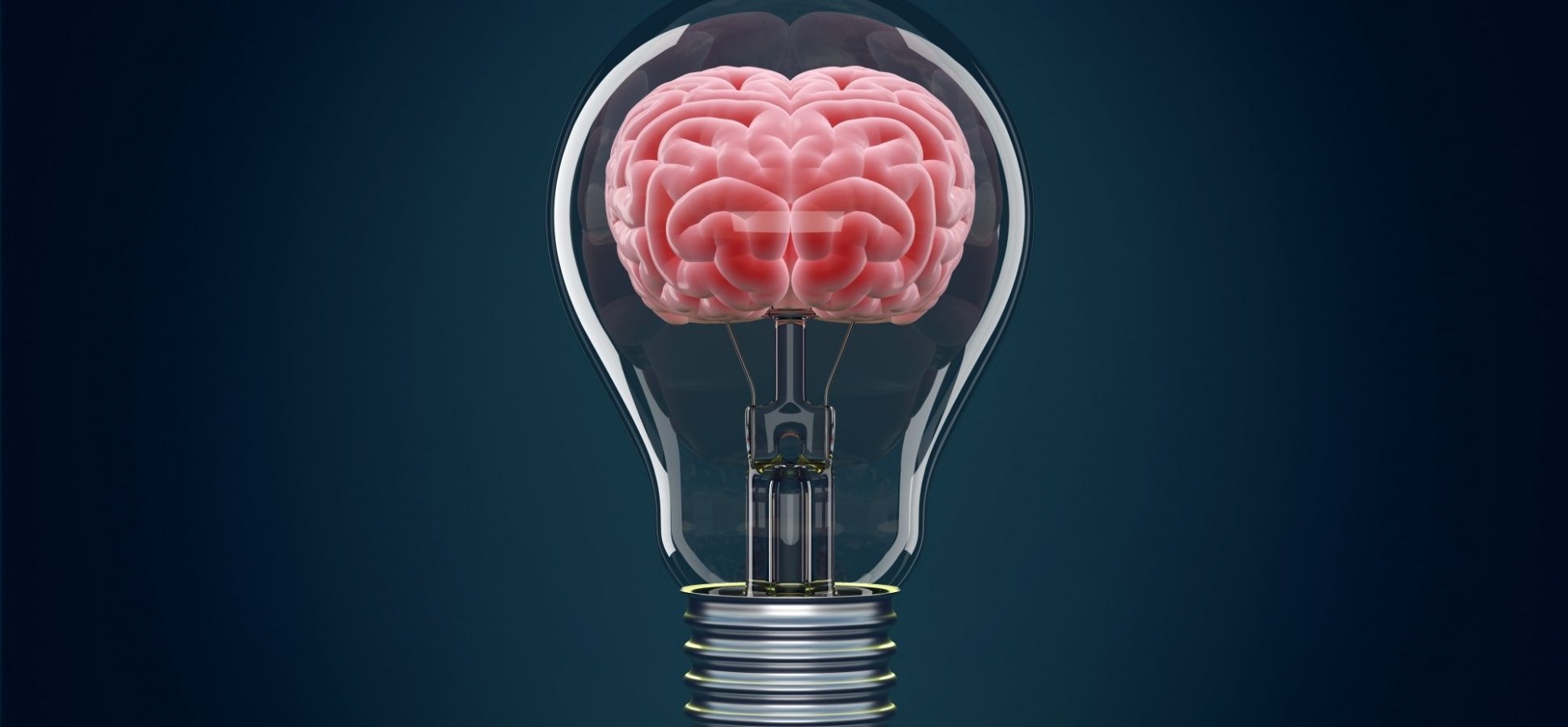
While drinking coffee is a necessary cultural norm that keeps us alert and productive throughout the day, a daily caffeinated fix can have spiraling effects that wreak havoc on the body. Before lighting your torches and starting riots, caffeine is a stimulant, plain and simple. It raises your cortisol levels (the natural "stress" hormone the body produces to help you wake up) above normal when we drink large amounts of coffee. A more natural solution to stay alert and focused during the day, it turns out, is to consume those vitamins your mother told you to take. This is what will give your brain the power it needs the most to function at an optimum level. Dr. Brady Salcido , a Brain Optimization Expert and host of The Health is Wealth Podcast , recently wrote up a list of the top nutrients you need to maximize your brain power and what foods to include in your diet in order to get them. Here we go… 1. Omega-3’s Fat is looked down on as a "villain of health," but Dr. Salcido says high-quality fat — found in Omega-3’s such as DHA — is essential for your brain power and health. Not getting enough in your diet may affect normal brain development and "be implicated in premature brain aging and cognitive decline," says Dr. Salcido. Where do you find Omega-3’s? Look for it in walnuts, chia seeds, sardines, salmon, flaxseed, eggs, and fish oil. 2. Magnesium Magnesium has been called "Nature’s Natural Valium" because of its calming effect on the brain and nervous system. Dr. Salcido says magnesium helps the brain by providing anti-inflammatory benefits, helping to lift depression, and reducing anxiety, among many other things. Best sources for magnesium include almonds, spinach, cashews, avocado, and black beans. 3. Vitamin B1: […]
How Meditation Can Improve Mental Health

Shutterstock.com Like the old adage that says an apple a day keeps the doctor away, we can say that an Aum a day can keep stress at bay. Meditation, which has always been associated with yogis and spirituality has now become more mainstream. From studios that teach the nuances of meditation to apps that let you meditate at your own pace, modern society has accepted meditation as a beneficial practice for mental and physical wellbeing. How Does Meditation Help Mental Health? Regular practitioners of meditation can tell you that there are different types of meditation, including Sahaj, which means effortless to those that are based on yoga, mindfulness , and transcendentalism. Regardless of the type you choose, here are a few ways in which meditation can benefit mental wellness: Reduces Stress and Anxiety Stress is a major concern in today’s fast-paced lifestyle; numerous studies show an increase in the usage of anti-anxiety medications as a result. Stress can disturb the mind and body, while meditation can help relax the mind and wipe away the disturbances. Practicing meditation regularly could help improve the brain’s ability to process stress, allowing individuals to regain control of their emotions. A study conducted based on mindfulness-based stress reduction showed positive results where people with generalized anxiety disorder, symptomized by uncontrollable worries, disturbed sleep, and irritability experienced high levels of relief. Increases Happiness It is quite natural that once you are stress-free, there is more space for happiness in your life. Studies have shown that meditation helps increase the brain’s signaling on the left side of the prefrontal cortex, which regulates positive emotions. Improved activity in this area has also been linked to the betterment of the immune system . As the left side increases its activity, the right side slows the projection of negative […]
Training to survive: Do you know what your priorities are?

( Natural News ) You need to know what to prioritize when the proverbial sh*t hits the fan. Our current political climate forces us to realize that this may come sooner rather than later, and it wouldn’t do to meet these situations with your pants down. In this article, we’ll talk about a few things that always should be at the top of your mind. The first: Your mental attitude dictates how well and how long you will survive . Having the right mindset can almost ensure your survival. Do not panic or fall into despair. A few minutes of self-pity is acceptable; but pick yourself up after 10 to 15 minutes of feeling sorry for yourself. Stay present and in the moment. Being hungry, cold, and lost can all add to the panic, but remember to focus on the situation at hand. It helps to take a few breaths and refocus. Many survivalists suggest the 16-second meditation. Inhale deeply through the nose for four seconds. Hold your breath for four more seconds then exhale loudly through the mouth for four seconds. Hold your breath again for four seconds and repeat the cycle. There is scientific evidence that shows that these mere 16 seconds can completely rewire your brain and reduce panic and anxiety. The next is keeping your body safe . Watch out for hypothermia (if you’re in a cold area) or heat stroke (if you’re in a warm area). Look for a place where you can set up shelter. For immediate, short-term shelters, try looking for trees (especially fallen ones), rocky overhangs, or caves. Be careful though when exploring a cave; a wild animal may also be using the cave for shelter. Support our mission and enhance your own self-reliance : The laboratory-verified Organic Emergency Survival Bucket […]
Eating fish once a week cuts risk of sudden cardiac death by half
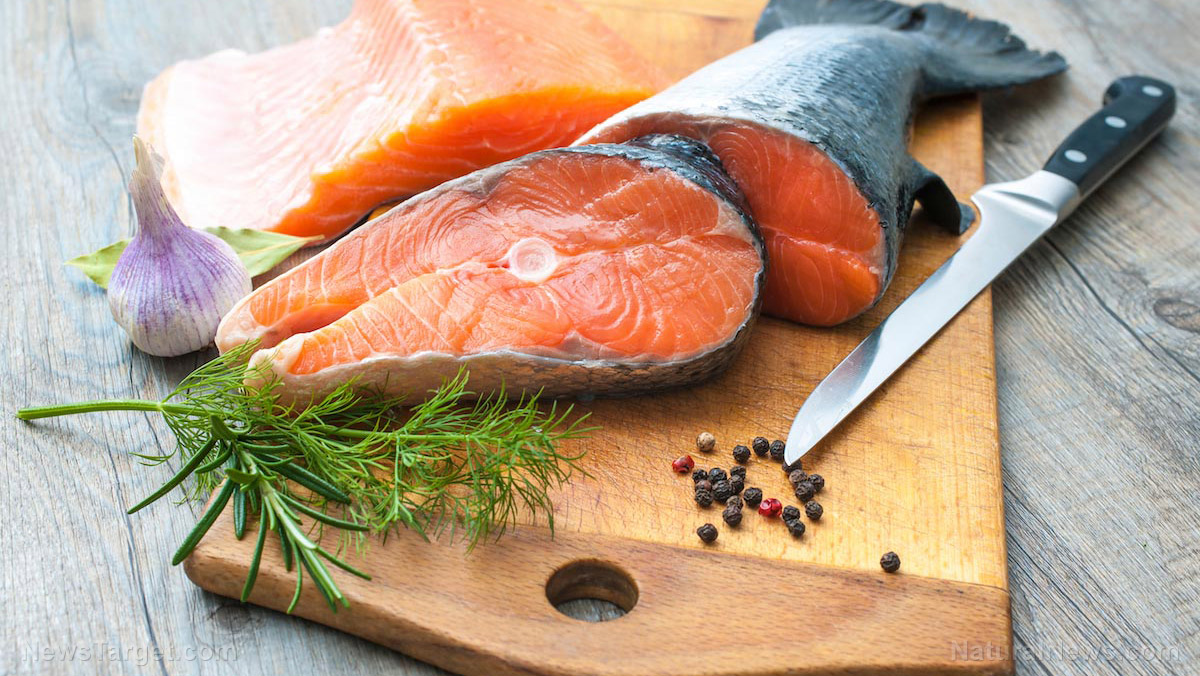
( Natural News ) Heart disease remains among the world’s top killers, causing one in every four deaths in the U.S. alone . A paper suggests that to reduce your risk of succumbing to the disease, one of the best things you can do is eat fish . The study examined the risk of sudden death caused by a heart attack among male U.S. doctors. The research defined “sudden death” as death or collapse that occurred within an hour after the onset of symptoms, a witnessed cardiac arrest, or both. About 12 months into the study, 20,551 subjects (aged 40 to 84 years old in 1982) filled out a questionnaire that inquired into what fish they ate. They also had to inform the researchers how often they ate fish. By the end of 1995, 133 deaths had occurred. After taking different related factors into account, the researchers determined that those who ate fish at least once a week had 52 percent lower risk of dying a sudden death compared to those who ate fish less than monthly. The researchers did not find any significant benefit from eating a specific type of fish or from consuming more than one portion per week. They also clarified that eating fish did not reduce the frequency of heart attacks, but it improved the odds of surviving such an incident. The study was part of the U.S. Physicians Health Study. Fish helps stabilize your heart’s rhythm Researchers in the aforementioned study attributed the results to the anti-arrhythmic properties of fish. Fatty fish like tuna and salmon are particularly high in omega-3 fatty acids which have been proven in several studies to help regulate cardiovascular function and suppress dangerous heart rhythms. Support our mission and protect your health: Organic Seeds of Life combines Red Raspberry […]
Green Tea Boosts Heart and Brain Health

By Dr. Mercola High quality teas — green tea in particular — contain polyphenol antioxidants recognized for their disease prevention and antiaging properties. Polyphenols can account for up to 30 percent of the dry leaf weight of green tea. Within the group of polyphenols are flavonoids, which contain catechins. One of the most powerful catechins is epigallocatechin-3-gallate (EGCG), found in green tea. EGCG has been shown to positively impact a number of illnesses and conditions, including obesity, Type 2 diabetes, heart disease and cancer. Tea Helps Lower Blood Pressure and Protects Your Heart Previous research 1 , 2 has shown long-term tea intake can improve your blood pressure readings. One systematic review of 25 randomized controlled trials found those who regularly drank either green or black tea for 12 weeks had an average of 2.6 mm Hg lower systolic blood pressure and 2.2 mm Hg lower diastolic pressure compared to those who did not drink tea. Green tea provided the best results, followed by black tea. According to the authors, this reduction “would be expected to reduce stroke risk by 8 percent, coronary artery disease mortality by 5 percent and all-cause mortality by 4 percent at a population level … These are profound effects and must be considered seriously in terms of the potential for dietary modification to modulate the risk of CVD [cardiovascular disease].” While unable to determine exactly how much tea you need to drink to receive these benefits, a number of previous studies have suggested the ideal amount lies around three to four cups of tea per day. 3 For example, one 2007 study 4 found “clear evidence” showing that three or more cups of tea — in this case black tea — reduced the risk of heart disease. Similarly, drinking three to four cups of […]
Should More Israelis Turn to Nootropics?

Nootropics are booming. The market is expected to grow at a CAGR rate of 17.9% by 2024 . Students, adults and seniors are turning to brain-boosting supplements as a way to increase everything, from cognition to their ability to solve problems. An aging population has also aided the nootropic industry, as many seniors want to help support their brain and memory . The industry, expected to rise to $6 billion by 2024, has a lot of potential to add to Israel’s GDP. Startups are filled with the world’s brightest minds with many of these up-and-coming talents able to benefit from “smart drugs.” An issue that many experts see is that the industry, still in its infancy, doesn’t have laws to protect the consumer. Many of the products are not tested, and without the requirement for testing, this means that the products can be filled with anything . There’s also the concern that the products can contain harmful ingredients. Yet there are ingredients found in nootropics that have the potential to enhance the brain’s function. Cerebral blood flow, nutrients and support for the brain’s natural anti-aging properties can help, theoretically, slow aging and even reverse it in some cases. But while science may not have been able to prove these benefits just yet, that doesn’t mean there aren’t hordes of people that back the claims nootropics make. Many doctors claim that the average diet, especially a Western diet, is not providing the brain with the nutrients that it needs to slow the aging process. The brain is often starved of vital nutrients and ingredients, primarily from a lack of eggs, meat and greens in a person’s diet. Nutrient-filled and the ability to increase nutrient transport to the brain, nootropics have real potential. Synapse’s co-founders recently discussed their desire to bring […]
Problem-solving Task After Concussion Improves Brain Function

Cognitive task as early as four days after a concussion improves brain function. It activates the region that improves memory function, and may also guard against developing depression or anxiety , a research team at the Southern Methodist University finds. Concern is growing about the danger of sports-related concussions and their long-term impact on athletes. But physicians and healthcare providers acknowledge that the science is evolving, leaving questions about rehabilitation and treatment options. ‘Mild problem-solving task as early as four days after a concussion may improve brain function, activating the region that improves memory function and guard against developing depression or anxiety.’ Currently, guidelines recommend that traumatic brain injury patients get plenty of rest and avoid physical and cognitive activity until symptoms subside. But this new pilot study looking at athletes with concussions suggests total inactivity may not be the best way to recover after all, say scientists at Southern Methodist University, Dallas, where the research was conducted. The study found that a simple cognitive task as early as four days after a brain injury activated the region that improves memory function and can guard against two hallmarks of concussion, depression and anxiety. "Right now, if you have a concussion the directive is to have complete physical and cognitive rest, no activities, no social interaction, to let your brain rest and recover from the energy crisis as a result of the injury," said SMU physiologist Sushmita Purkayastha, who led the research, which was funded by the Texas Institute for Brain Injury and Repair at UT Southwestern Medical Center, Dallas. "But what we saw, the student athletes came in on approximately the third day of their concussion and the test was not stressful for them. None of the patients complained about any symptom aggravation as a result of the task. […]
